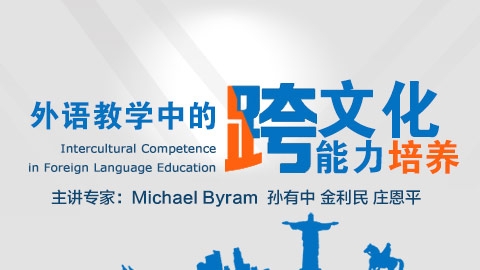孙教授从宏观的角度、管理者角度讲解了建构IC能力培养的5个原则、7个方法策略。
Clarifying concepts, Examples, Self-assessmen
The power of assessment: 'washback effect' and 'teaching to the test'; but assessment is more than testing.
Concept 1--Evaluation: Evaluation of teaching-and-learning=process: 1. Is the process coherent: 'Are you teaching what you say you want to teach?'; Is the process successful? 'Are your learners learning what you (and they) want them to leanr?'; Are your methods working?; How can the above anseres improve the process?
Concept2--Assessment: Assessment of learning and learners=products: Have the learners learnt what they have been taught (achievemnt)?know that.about and know how; What have the laerners learnt from anywhere --home, school, friends, internet, etc (proficiency)? 从过程和结果来测评的角度划分的很清晰
IDC(Intercultural development inventory)is a 50-item, theory-based instrument that can be taken either in paper and pencil form or online. The IDC is currently in 15 languages including Chinese.
https://idiinventory.com
culture is a verb: is what people do
=behaviours and values
7 C of IC:
criteria
cultures
(culture-general knowlege
culture-specific knowlege)
contextualizing
comparing
challenging
(stereotypes)
critiquing
(analyze, criticize)
applying
I came ,I saw, I was conqered/inspired
importance of IC
(survival skill, university program, dual tasks)
components of IC competence
(knowlege, skills, disposition)
Culture is a verb. This is a quite unexpected idea yet does make sense. However, some terms could still use some furthur explanation, such as value and belief. Moreover, whether behaviour is entirely determined by values and beliefs is still under question.
Culture difference might affect people's interpretation of the same utterance. The differences exist among different western countries as well instead of only between east and west.
The belief that nearly all people like to social seems a bit generic. It might also vary depending on different occasions.
Since it has variations, what kind of variant can be qualified as the general rule?
I appreciate the definition of 'teaching' culture, it is about discover, analyse and critique.
The research is quite interesting. I am not sure how the change of tradition can be illustrate from the research project. Otherwise, it is intriguing.
The criteria of cateorization could be different.
The findings are quite enlightening. Details will be otherwise overlooked such as the registered charity number.
The extended discussion regarding charities in Britain and China is also amazing. It also has something to do with the religion, the institution and set of laws, therefore, Chinese should not be blamed for not being active in donation. Hence, I believe the so called critique is not critical enough.
The model of intercultural communicative competence could be more detailed and elaborate, for example, arrows could be added to illustrate how specific skills, knowledge and awareness interact with each other.
This could also be applied to writing that beyond textual features, teachers should also teach students about genre and context and raise their awareness.
I appreciate the idea that by analysing different stereotypes, one can reflect upon his own culture.
I would like to know more about the research:
why use the HK student's diary entry as the lead-in?
I am not very sure of the logic of the order of objectives set for the students.
What is the why objectives for acquirint IC?
I like the idea that knowing how is more important than merely accumulating what.
Education is freedom这段话真好,摆脱偏见,开放宽容。
从跨文化教学的角度看待。
awareness 还是核心。
跨文化学习是一种过程(什么不是呢?)
不能想当然,不能态度极端,要动态地看待文化。
个人的身份、认知的改造和重组。
不断地反思。
by ic (knowledge and empathy)
Type of assessment: Tests, tasks
Criteria: unconscious, consious
Example Evaluation of ShuoQian's course:
Aims, evaluate coherence. evaluate learning, assess
Developmental model of intercultural sensitivity-Bennett
intercultural develpoment inventory
How to evaluate--examples: aanalyse curriculum, interview and observe teachers, interview learners.多角度triangulation很全面。evaluation is not assessment. Assessing: test 'knowledge about' with question and answer; test 'knowledge how' (how to compare, discover, critique) with tasks. 划分非常清晰。 types of assessment, 标准的划分有对错和等级。Teachers use unconscious criteria. Experts (trained teachers) use conscious criteria.这两句话非常好。
developmental model of intercultural sensitivity--Bennett: Denial-defence-minimization-ethnocentrism; acceptance-adaptation-integration-ethnorelativism. dealing with cultural differences
assessment evaluation
overview
two approaches to research:
conceptual (ideas, theory, models); empirical (explaining of cause and effect, understanding of the experience of people, advocating of creation of change)
噢噢噢
understand the teachers and students' ideas/ theories/ models by interviews, writing diaries
methods for understanding:
individuals, cases,surveys
advocacy:the feasibiliy/ practicality of teaching method


